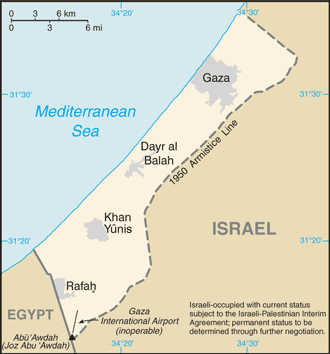Secretary Kerry’s announcement this week that the peace talks would resume was met by relief by some, skepticism by others, and scorn by many.
Personally, I think talking is better than not talking, but are the right people talking?
It appears that the talks will be led by aides to Netanyahu and Abbas who will have no power to make decisions themselves; they will have to report back to their respective leaders. Oh, come on! If Bibi and Mahmoud can’t even sit in the same room and talk, how in the world does anyone think there’s going to be a successful negotiated peace agreement?
The peace talks are scheduled to be held in Washington, DC. Oh, come on! Washington hasn’t been an honest peace broker in the Middle East for decades, if ever. The only difference now is that the world knows it. My country’s lop-sided support for Israel ($$ to subsidize Israel’s military and settlements, and our numerous vetoes at the Security Council are but two examples) has cost the United States the credibility and respect required to serve as an honest broker in these talks.
The best possible outcome of this new “peace” effort would be a joint announcement by Netanyahu and Abbas on the White House lawn that they are both resigning from their respective positions effective immediately.
They represent the failures of the past. Neither man is much respected by the people who count, the next generation of Palestinians and Israelis. Neither man can be trusted. Just check out this amateur video of Netanyahu explaining how he killed the Oslo peace process.
I believe Abbas and the Fatah party are considered a corrupt legacy from the past. Many Palestinians told me in Gaza that they voted for Hamas in 2006 as a protest vote against Fatah.
No “agreement” (even if one is reached) will be implemented without the tacit support of the next generation on the ground. So I recommend the following parameters for “peace talks.”
- Each side (Israel and Palestine) select a group of young people (teens, 20-somethings, and middle-aged folks under 50) to participate in the talks.
- It might take time to make the selection, but it would be time well-spent. Each side would be limited to a dozen people.
- The location of the “peace talks” would be on a cruise ship. All expenses would be donated by the countries that have been fueling the military war-zone in the Middle East — that means almost everyone. The United Nations would be tasked with the responsibility of overseeing the logistical arrangements for the cruise.
- There would be no observers, press or media aboard this ship, but legal and political advisers would be invited on mutually-agreeable terms.
- There would be no preconditions for initiating these peace talks, but there would be ground rules. I recommend a mediator be included who would spend the first few days or weeks training the participants in how to engage in honest, respectful and fruitful discussions. Lucy Moore comes to mind.
- This would be a working cruise with participants expected to engage in facilitated discussions several hours each and every day, but the informal conversations might be even more important.
- The cruise ship would travel the world’s oceans for as long as the participants are engaging in productive conversations. There would be no preconceived agenda or outcome. The talks would end, and the ship would return to its port, when a majority of the participants voted to end the peace talks.
- The participants would select representatives from each side to sit down with the leaders of the world at the United Nations and explain the results of their peace talks. If there are any concrete tasks that need to be accomplished by any party (Israel, Palestine, US, etc) to implement the agreement, the United Nations would be responsible for overseeing the implementation of such tasks.
- Once each year, the leaders of Israel and Palestine would be required to report back to the cruise participants about the progress or lack of progress in implementing the recommendations.
Come to think of it, this might be the very best tribute to the Mavi Marmara victims, and it would provide the space and time for healing to occur on both sides.


The Achilles heel of this otherwise quite intriguing process is the selection of representatives (and perhaps the mediator). Citizens of both countries appear to be deeply divided on their visions of the future, and these visions must be reconciled.
Perhaps those visions could be reconciled together on the cruise ship.